(Oct - Dec)
Common Module: Texts and Human Experiences
Select a year to see available courses
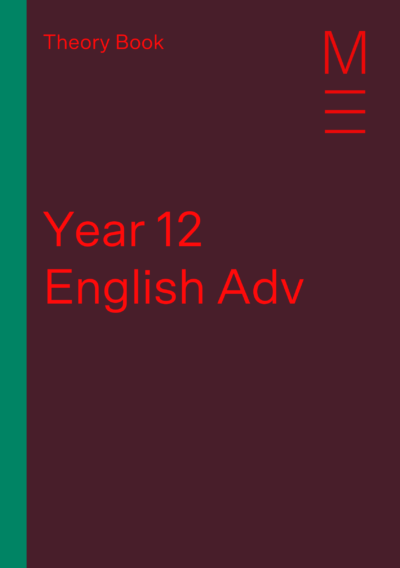

Get ahead with module and text-specific resources tailored for HSC success. Gain comprehensive access to resources including textual analysis, critical readings, and contextual information on almost every text on the NESA syllabus.
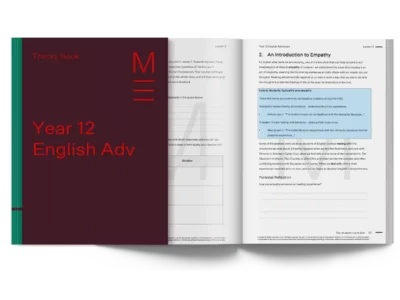
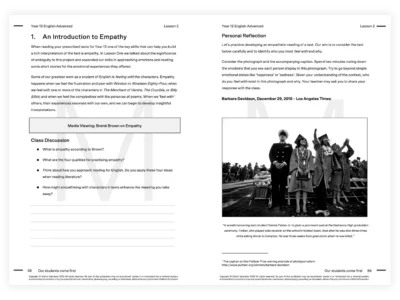
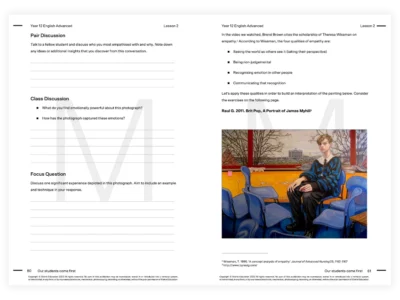
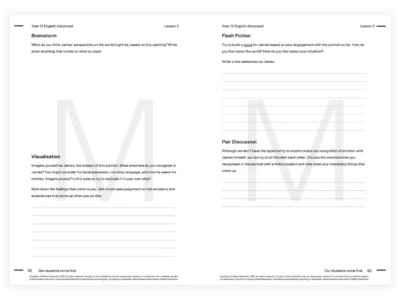
See how our flexible learning methods can cater for your learning needs.
Matrix Term 1
(Oct - Dec)
Common Module: Texts and Human Experiences
Matrix Term 1
(Oct - Dec)
Common Module: Texts and Human Experiences
Matrix Term 2
(Feb - Apr)
Module A: Textual Conversations
Matrix Term 2
(Feb - Apr)
Module A: Textual Conversations
Matrix Term 3
(Apr - Jun)
Module B: Critical Study of Literature
Matrix Term 3
(Apr - Jun)
Module B: Critical Study of Literature
Matrix Term 4
(Jul - Sept)
HSC Exam Preparation Course
Matrix Term 4
(Jul - Sept)
HSC Exam Preparation Course
Matrix Term 1
(Oct - Dec)
Lesson 1: Just What is a ‘Human Experience’?
Lesson 2: Empathy
Lesson 3: Emotions, Memory and Experience
Lesson 4: Assessment Preparation
Lesson 5: Common Module Prescribed and Related Texts
Lesson 6: Your Prescribed Text
Lesson 7: Storytelling
Lesson 8: Paper One Mock Exam
Lesson 9: Plenary
Matrix Term 2
(Feb - Apr)
Matrix Module A courses offer the following text-based classes:
Student must enrol into a class that matches their prescribed text at school.
Alternatively, students may enrol in The Craft of Writing (Module C).
Matrix Term 3
(Apr - Jun)
Matrix Module B courses offer the following text-based classes:
Student must enrol into a class that matches their prescribed text at school.
Alternatively, students may enrol in The Craft of Writing (Module C).
Matrix Term 4
(Jul - Sept)
Revise the Common Module and all the English Advanced Modules in 9-Weeks
Review all the syllabus points
Revise all the written styles
Complete mock exams in preparation for the HSC
Matrix+ online
Term course
Holiday course
Who is it for?
Course structure
Matrix resources
Reporting
Additional support
Homework
Assessments
The English course is so well designed. We are exposed to many different text types, allowing us to prepare for any possible exam question that could come up. My teacher also helped me work towards improving my writing by pinpointing areas of improvement.

Mount Saint Joseph, Milperra
Year 12 English term courses helped me gain a broader understanding of all the Modules as well as improve my analysis skills. Moreover, the valuable feedback I received from my teacher ultimately gave rise to higher marks and increased confidence.

Tara Anglican School for Girls
For me, the English courses were most helpful as they were tailored to your selected texts and include useful information on context and history, alongside the usual textual analysis and techniques.

SCEGGS Darlinghurst
I love the Matrix English courses because they are wonderful at allowing students to evaluate and understand different values and understanding from a range of texts. They provide a clear structure and process to writing essays to help me improve my process.

St George Girls' High School
Matrix English courses help to develop a balance between the different aspects of English: teachers establish a strong understanding of rubric requirements before guiding us through a deep understanding of the text. Then we are guided through writing effective responses with feedback.

Sydney Boys High School
The English Advanced course assisted me in learning how to correctly structure my essays and address the relevant sections of the question. The classroom format was also beneficial to my learning, as it allowed for interactive discussions with valuable insights from both peers and teachers.

St Mary's Cathedral College, Sydney
I found the Matrix English term course useful in developing my knowledge of the text as well as its context. I also found it was helpful because you could get extra feedback from your teachers!

Pymble Ladies' College
Identify your gaps. Accelerate your learning. Achieve your goals.
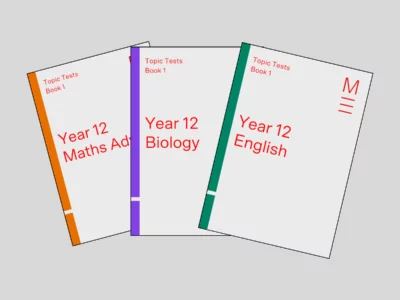
Flexible payment options: Pay quarterly or monthly over 3 months.
Term course
9 weekly lessons over 9 weeks
$1350
per term
$450
per month for 3 months
Who are Matrix teachers?
Matrix English teachers are experienced educators who have degrees in related disciplines. They are knowledgeable, know how to explain things clearly, and make learning fun.
What are the teaching styles of Matrix teachers?
Matrix English teachers deliver a structured and engaging learning experience through a mix of instructional and interactive teaching.
Is the Matrix Year 12 English Advanced tutoring program mapped to the NSW syllabus?
Yes, the Matrix Year 12 English Advanced tutoring program covers every aspect of the NSW Education Standards Authority (NESA) Syllabus thoroughly.
Why does Matrix teach one term ahead of the school program?
Matrix Term 1 starts in October each year. This allows Year 12 students to work on the HSC syllabus for four full times as opposed to three terms at school. The extra term of HSC studies means Matrix students gain a competitive advantage over their school peers.
Can Matrix Year 12 English Advanced tutoring improve my child's marks at school?
100% of our students have reported an improvement in their confidence and marks since enrolling into the Matrix Year 12 English Advanced course.
What is the class size?
All Matrix classes seat a maximum of 15 students arranged in U-shape formation to support an interactive and engaging student learning environment.
How long does each Year 12 English tutoring session go for?
The length of each Year 12 English tutoring session depends on the course type:
What's the difference between Holiday course and Term course?
The table below compares the Holiday course to the Term course.
| Holiday Course | Term Course | |
| What is it | 5 day on campus course | 9 week on campus course |
| When is it | Holidays | Term |
| Who is it for | Learn ahead of school and save time during the term | Learn in alignment with the school pace |
| Course structure | 3 hour daily lessons over 5 consecutive days | 3 hour weekly lessons over 9 weeks |
| Individual support | 1: 1 Workshops available during the term | 1: 1 Workshops available during the term |
If my child misses a lesson, what can they do to catchup?
Matrix provides students access online Theory Lesson Videos for missed lessons and revisions. The video lessons are easy to follow and paired with the Matrix Theory Book.